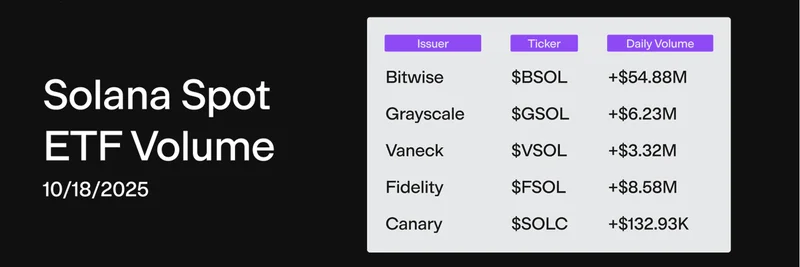In the fast-paced world of crypto, token launches are like the wild west—exciting, chaotic, and often leaving retail investors in the dust. That's why a recent tweet from Danny Nelson, a research analyst at Bitwise Invest and former CoinDesk journalist, caught my eye. He breaks down Coinbase's newly announced ICO platform, highlighting its strengths and shortcomings. As someone who's covered the crypto beat for years, I see big implications here for meme tokens, those fun, community-driven assets that dominate headlines and portfolios alike.
Check out Danny's tweet here for the full scoop.
What's the Buzz About Coinbase's Platform?
Coinbase, one of the biggest names in crypto exchanges, just rolled out a regulated platform for token sales, kicking things off with the Monad (MON) token. According to reports, this setup aims to democratize access to early-stage token offerings, which have traditionally been dominated by venture capitalists and insiders. The platform includes features like purchase limits and lock-up periods to curb those infamous "pump and dump" schemes where tokens skyrocket and crash in minutes.
For context, an ICO—or Initial Coin Offering—is basically a crowdfunding method where projects sell new tokens to raise money. In the past, these were unregulated and risky, leading to scams and losses. Coinbase's version promises more transparency and compliance, using their infrastructure to handle sales before tokens hit the open market. It's set to launch the MON sale on November 17, 2025, ahead of Monad's mainnet debut (source).
But as Danny points out, while this fixes some access problems—think fairer distribution and anti-flipping measures—it doesn't address the core question: What real value do these tokens provide to holders?
Meme Tokens in the Mix: Opportunity or Overhype?
Meme tokens like Dogecoin, Shiba Inu, or the latest viral sensations on Solana's pump.fun often launch with minimal barriers, relying on hype, memes, and community vibes rather than solid utility. Platforms like pump.fun have made it dead simple to create and launch a meme coin, but they've also fueled rug pulls and volatility.
Could Coinbase's platform change the game for memes? On one hand, it could bring legitimacy. Imagine a meme token launching through Coinbase: regulated, with built-in safeguards against quick flips. This might attract more mainstream investors who shy away from decentralized launchpads due to scam risks. It could also integrate with Coinbase's ecosystem, like their Base layer-2 network, which is already buzzing with on-chain activity.
However, meme tokens thrive on chaos and virality—qualities that a structured, regulated platform might stifle. Plus, as Danny notes, the bigger issue persists: rights and rewards for holders. Most meme tokens offer zero governance rights, dividends, or revenue shares. They're speculative bets on culture and momentum. If Coinbase's platform encourages projects to think about holder value—maybe through staking rewards or DAO voting—it could elevate meme tokens from jokes to genuine assets.
Take Monad, the inaugural project: It's a high-performance blockchain aiming to rival Solana, with staking via Helius labs tech (source). That's a step toward real utility. For meme creators, this could be a blueprint: Launch on Coinbase, add some holder perks, and watch the community grow sustainably.
Why Holder Rights Matter in the Meme Economy
Danny's critique hits home in the meme space, where "diamond hands" (long-term holders) often get burned by "paper hands" (quick sellers). Without built-in rewards—like fee shares in Uniswap's potential fee switch (which Danny teased might beat GTA6 to launch)—tokens remain empty vessels.
In my time at CoinDesk, I saw countless projects promise the moon but deliver dust. For blockchain practitioners diving into memes, this platform could be a tool to build better: Use it to ensure your token has mechanisms for value accrual, like burning fees or airdrops to loyal holders.
But don't get too excited yet. Reports suggest Coinbase might cancel or adjust plans amid market feedback (source). And for pure memes, decentralized options might still reign supreme for their low barriers and viral potential.
Final Thoughts: A Step Forward for Crypto Launches?
Danny Nelson's insight reminds us that tech alone isn't enough—tokens need purpose. As meme tokens evolve from pure speculation to community empires, platforms like Coinbase's could bridge the gap, making launches fairer and more rewarding. If you're building or investing in memes, keep an eye on this. It might just reshape how we think about "to the moon."
Stay tuned to Meme Insider for more on emerging trends in the meme token world. What do you think—will regulated launches kill the meme vibe or supercharge it? Drop your thoughts below!

